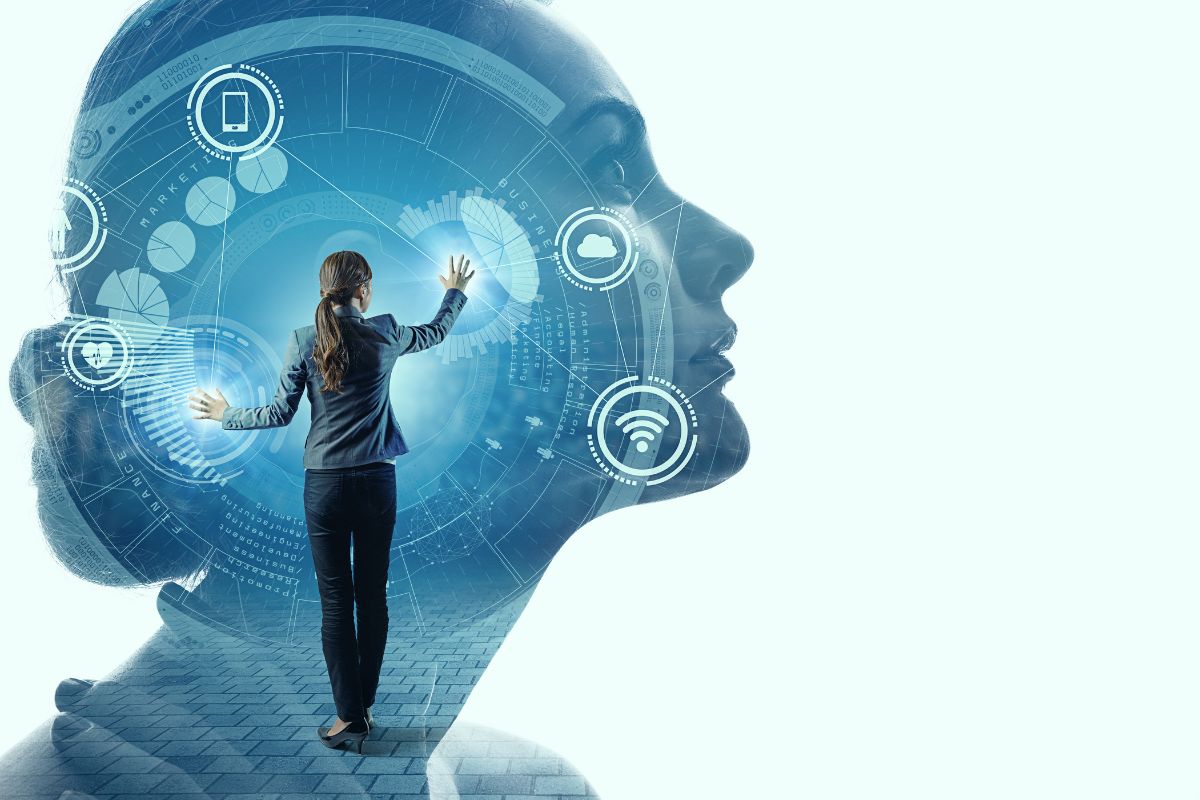7 Ways AI Will Impact Learning and Development

In today’s rapidly evolving technological landscape, artificial intelligence (AI) has emerged as a transformative force with the potential to revolutionise various industries.
What Is Artificial Intelligence?
The term “Artificial Intelligence” (AI) is most often used to refer to systems that operate through Machine Learning consultancy. AI refers to systems or computers that mimic human intellect to perform tasks and may evolve and enhance themselves depending on the information they receive.
One field that stands to benefit significantly from AI’s capabilities is Learning and Development (L&D). L&D is intrinsically linked to job satisfaction, with a massive 94% of employers surveyed by LinkedIn reporting they would stay at a company longer if they saw investment in their learning and development. As AI continues to advance, it is poised to reshape the way we learn, train, and develop skills. Here we explore five key ways that AI will impact Learning and Development:
1. Personalised Learning Paths
One-size-fits-all approaches to education and training are becoming outdated. Regardless of the sector, people use varying learning processes and may retain information differently. When AI in L&D training courses is used, programmes can be developed keeping in mind the different learning styles of the employees.
AI-driven platforms have the capacity to analyse individual learning styles, preferences, strengths, and weaknesses. By harnessing this data, AI can tailor learning experiences to each learner’s unique needs, which could depend on their learning speed, age, gender, and demographics. This leads to increased engagement and more efficient learning, as individuals can focus on areas where they need improvement and progress at their own pace.
Furthermore, since AI learning platforms can be built to hold the learning materials, training videos, and preferences of employees, companies can deliver training courses on demand. This type of learning platform allows management to track the employee’s progress. AI can also be integrated with VR and AR technologies to create immersive and interactive learning experiences. VR simulations can provide realistic scenarios for practice and skill development, while AR overlays can deliver real-time guidance and information, enhancing hands-on learning and performance support.
2. Intelligent Content Delivery
AI’s integration into education is reshaping how content is delivered, making intricate subjects more accessible. With natural language processing (NLP), AI can simplify complex concepts, acting as a personal tutor that translates jargon into simplified explanations. Beyond this, AI’s real-time language translation capabilities break down global language barriers, allowing learners worldwide to access courses and resources in their preferred language. This not only fosters inclusivity but also enables the exploration of diverse perspectives. AI’s potential for tailoring content to different learning styles and abilities further enhances inclusivity, making education adaptable and personalised.
3. Data-Driven Insights
When you use AI in L&D, you can tap into your learning management system (LMS) data. This data can be used to get feedback to understand employee performance and other analytics, which can provide a range of insights into the business’s L&D efforts. These details can be used to measure the effectiveness of the learning content, how it can be improved, and identify the learning patterns and techniques among the employees while mapping out the trends. This data-driven approach enables instructors and L&D professionals to make informed decisions about course adjustments, content updates, and teaching methodologies.
4. Skill Gap Analysis
In the dynamic landscape of workforce development, AI emerges as a powerful ally in addressing skill gaps within organisations. Through sophisticated data analysis, AI can swiftly and accurately pinpoint areas where employees lack specific skills critical for their roles. This real-time insight empowers organisations to make strategic decisions about learning and development initiatives. By recommending tailored training courses and learning pathways, AI helps align the learning journey with the precise skills needed. This transformative process ensures that professional growth isn’t just a shot in the dark but a guided trajectory, enhancing both individual performance and the overall organisational prowess.
5. Enhanced Skills Assessment
Traditional methods of assessing skills often fall short in accurately evaluating an individual’s capabilities. AI can provide more comprehensive and objective skill assessments by analysing not only the final output but also the employee’s problem-solving strategies, critical thinking abilities, and decision-making processes. This holistic evaluation fosters a deeper understanding of a learner’s proficiency.
6. Automation of Routine Tasks
AI can alleviate L&D professionals from routine administrative tasks, allowing them to focus on more strategic aspects of their roles. Chatbots, for instance, can provide instant support to learners, answering queries and providing guidance 24/7. Additionally, AI-powered systems can automate the creation of assessments, quizzes, and training materials, saving instructors valuable time.
7. Immediate Feedback
Immediate feedback has also been found to deepen learner understanding, reinforcing knowledge and correcting mistakes rather than repeating them. Research shows that students who receive immediate feedback could fix many of their initial incorrect answers and achieve higher revised scores than those who receive delayed or no feedback.
Many tools are taking this further and providing digital tutors available 24 hours a day, seven days a week. It might sound futuristic, but apps like Duolingo are already deploying artificial intelligence by leveraging chatbot software to coach language learners through their language learning to great effect.
Final Words
In the foreseeable future, AI is more likely to augment human trainers rather than replace them entirely. The unique qualities that human trainers bring to the learning experience remain invaluable, particularly in areas requiring emotional intelligence, adaptability, and interpersonal skills. The collaboration between AI and human trainers holds the potential to create a holistic and effective learning environment that caters to a wide range of learner needs. With the proper investment in AI technology, the entire process for L&D can be greatly improved for both the employee and the employer. Discover more at here.












Responses